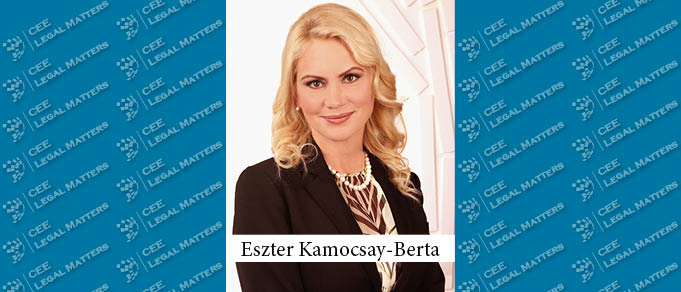Business start-ups and terminations reflect the recovery of the Hungarian economy after the downturn following the outbreak of the coronavirus epidemic. In the second quarter of last year, when the epidemic hit the country, only 5,041 companies were set up. Meanwhile, in the last three months of last year, the number was close to 9,000 and in the first quarter of this year it has already exceeded 9,000, as we discussed in a recent joint webinar with OPTEN.
Hungary: European Data Protection Supervisor - Guidance on Return to the Workplace and EUIs’ Screening of Covid Immunity or Infection Status
The European Data Protection Supervisor (“EDPS”) has issued a guidance document entitled “Return to the Workplace and EUI’s (European Institutions, Agencies and Bodies) screening of Covid immunity or infection status” (the “Guidance”).
New Priorities Rules of the Bulgarian Competition Protection Commission - Another Try for Boosting the Antitrust Enforcement
At the beginning of 2021 the Bulgarian Competition Protection Act (CPA) was amended, among others, with the implementation of ECN+ Directive. This brought hope that the antitrust activity of the Bulgarian Competition Protection Commission (CPC) may increase.
Step Forward Towards Simplification of the Company Registration Procedure in the Federation of BiH – Parliament of Federation of BiH Adopted the Amendments of the Company Law
The Parliament of Federation of BiH adopted the amendments of the Company Law of Federation of BiH and the amendments have been published and entered into force on 23 September 2021. The amendments of the Law are aimed at achieving the goal set in the Reform Agenda of Federation of BiH related to simplification of the procedure for registration of business entities and setting up a one-stop-shop company registration system.
New Fiscalization Model – New Payers and New Rules, but also Subsidies
Application of the Law on Fiscalization (Official Gazette of RS no. 153/2020) (“the Law”), that we have discussed before, which has repealed Serbian Law on Fiscal Cash Registers (Official Gazette of RS no. 135/04 and 93/12) by entering into force on December 29, 2020, will start on January 1, 2022 (except for several provisions that have already started to apply, on the day of entry into force). The regulation concerned, along with the set of by-laws enacted for its implementation, introduces a completely new model of fiscalization, which – among other things – implies a wider circle of taxpayers who will be obliged to apply it, new rules regarding the characteristics of fiscal cash registers and fiscal receipts, as well as certain subsidies for the entities covered by fiscalization.
New Tax Alleviation Measures under the Pandemic
The pandemic context and its economic implications prompted in 2020 and 2021 several legislative measures to alleviate fiscal burden both through tax facilities, such as amnesties or regulation of new cases and conditions for debt rescheduling, and through amendments concerning deductibility for tax purposes. This type of measures fall under the scope of the newly enacted Government ordinances nos. 8 and 11, published on August 31, 2021 in the Romanian Official Gazette.
Limited Network Exemption under PSD2 – EBA Consults on Draft Guidelines
In summer 2021 the European Banking Authority (EBA) published Draft Guidelines on the limited network exemption (LNE) under the Payment Service Directive 2 (PSD2) for consultation. The Draft Guidelines are meant to foster supervisory convergence amongst the EU's national competent regulators (NCAs).
Directly Negotiated PPAs in Romania - Are We There Yet?
Directly negotiated power purchase agreements with physical delivery (“PPAs”) have been a sensitive topic in Romania since 2012, when they were prohibited under the new energy law no. 123/2012 (the “Energy Law”) and continue to be a hot topic today, even though (long term) PPAs negotiated over the counter are expressly allowed under art. 3 (o) of Regulation (EU) 2019/943 (“Internal Market Regulation”), as they fall under the concept of “long term supply agreements”. This is mainly because Romania has stumbled over the last 2 years in reintroducing the directly negotiated PPAs back into the domestic legislation, in line with EU rules and EU market practice.
What’s New in the Amendment to the Public Health Insurance Act
On 14 September 2021, the Chamber of Deputies approved the long-awaited amendment to Act No. 48/1997 Coll., on Public Health Insurance (the “Act”), as returned by the Senate (the “Amendment”). It now awaits signing by the President of the Czech Republic. The Amendment brings a wide range of changes and innovations, such as rules for the entry of innovative drugs and orphan drugs into the reimbursement system, the creation of centres for rare diseases and mental health centres, and the introduction of a definition of a patient organisation.
Unlawful Consent is Still Consent: International Law Perspectives on Komstroy vs Moldova
On 2 September 2021, the Court of Justice of the European Union (CJEU) issued the much awaited judgement in the Komstroy vs Moldova case (C-741/19).
The New Form of a Company in the Republic of North Macedonia
The Company Law in the Republic of North Macedonia has finally introduced a simplified limited liability company.
Stricter Rules for Cookies in the Czech Republic from 2022
The Czech Chamber of Deputies approved an amendment to Act No. 127/2005 Coll., on Electronic Communications (hereinafter referred to as the “ECA”), after the Czech Senate returned it earlier. The purpose of this amendment is primarily to harmonise Czech legislation with the European Electronic Communications Code. However, the amendment will also affect other areas that are not directly related to the Code. One of the most significant changes will affect anyone who operates a website or mobile application and uses statistical, analytical or advertising tools. The change is to move from the current opt-out principle for the use of cookies and similar tracking technologies to an active user consent regime, the so-called opt-in regime.
Turkish Law of Inheritance Series I.: Right of Inheritance, Statutory Heirs, Testamentary Heirs and Beneficiaries
Following the death of a person, the fate of the wealth they created throughout their life, and how to ensure the continuity of this value is a common concern shared by many people. In Turkish law, these matters are regulated in the "Inheritance Law" book, which is the third book of the Turkish Civil Code No. 4721. In the first of our series of articles, in which we will examine the law of inheritance through various topics of interest, we will discuss the concept of inheritance and heirdom. In following articles, we will touch on the frequently asked questions regarding the law of inheritance.
Solar and Renewable Energy Sector to Benefit From Residential Solar Tender for Hungary
The draft of a huge EU solar tender for the residential sector was published by the Hungarian Government at the end of August 2021. The draft proposal shows that households earning less than the national average income will be eligible for 100% non-repayable grants of between HUF 3-11.5 million (EUR 8,500 – 31,500) for green investment purposes.
An Increase of a Minimum Wage from 1 January 2022
The Government of the Republic of Serbia passed the Decision on the level of minimum labour wage for the period January – December 2022 and it was published in the Official Gazette of RS no. 87/2021 of 10 September 2021, while it shall apply from 1 January 2022 (“the Decision”).
Curia’s Unity Decision on the Transfer of Contracts
The Curia has made a legal uniformity resolution no. 7/2021 PJE on the enforcement of the rules of contract transfer. The resolution has been trying to put an end to the issues of contract transfer, especially in the case of agricultural leases. The previous legal practice was based on the interpretation that the contract shall be deemed to be a new contract in respect of all rights and obligations transferred.
Poland: Implementation of AMLD V – New KYC Procedures and Registers
The recent implementation of the AML V Directive to the Polish Act on Counteracting Money Laundering and Terrorist Financing will have a significant impact on business and the approach taken by state bodies to certain transactions. The main changes are as follows:
Changing Company Rules in the Hungarian Civil Code
With respect to the evaluation of the success of the incorporation of certain provisions of the Hungarian Civil Code in the practice and the regulatory proposals developed by the case law, the amendment of the Civil Code has become necessary, therefore, at the end of June 2021, an act amending the Hungarian Civil Code has been published.









































